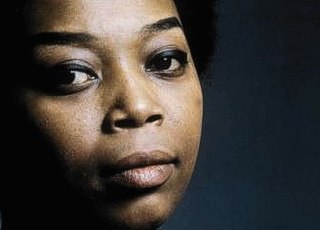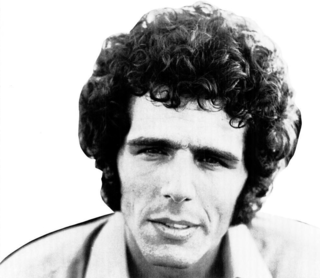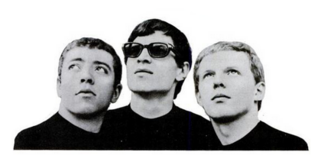Related Research Articles

Sam & Dave were an American soul and R&B duo who performed together from 1961 until 1981. The tenor (higher) voice was Sam Moore and the baritone/tenor (lower) voice was Dave Prater (1937–1988).

Doris Troy was an American R&B singer and songwriter, known to her fans as "Mama Soul". Her biggest hit was "Just One Look", a top 10 hit in 1963.
Roulette Records was an American record company and label founded in 1957 by George Goldner, Joe Kolsky, Morris Levy and Phil Kahl, with creative control given to producers and songwriters Hugo Peretti and Luigi Creatore. Levy was appointed director.

The Foundations were a British soul band who were primarily active between 1967 and 1970. The group's background was: West Indian, White British and Sri Lankan. Their 1967 debut single "Baby Now That I've Found You" reached number one in the UK and Canada, and number eleven in the US. Their 1968 single "Build Me Up Buttercup" reached number two in the UK and number three on the US Billboard Hot 100. The group was the first multi-racial group to have a number one hit in the UK in the 1960s.

"I'm Gonna Make You Love Me" is a soul song most popularly released as a joint single performed by Diana Ross & the Supremes and the Temptations for the Motown label. This version peaked for two weeks at No. 2 on the Hot 100 in the United States, selling 900,000 copies in its first two weeks, and at No. 3 on the UK Singles Chart in January 1969.

Richard Dean Taylor was a Canadian musician, most notable as a singer, songwriter, and record producer for Motown during the 1960s and 1970s. According to Jason Ankeny, Taylor was "one of the most underrated acts ever to record under the Motown aegis."

Luigi Alfredo Giovanni Sacco, known professionally by his stage name Lou Christie, is an American pop and soft rock singer-songwriter known for several hits in the 1960s, including his 1966 US chart-topper "Lightnin' Strikes" and 1969 UK number-two "I'm Gonna Make You Mine".

Robert Bloom was an American singer-songwriter. He is known best for the upbeat 1970 hit, "Montego Bay", which was co-written with and produced by Jeff Barry.

The Peddlers were a British jazz/soul trio of the 1960s and 1970s. Led by organist Roy Phillips, they had hits with "Birth" and "Girlie". They were very popular in New Zealand during the 1970s.
Warm Dust were a British progressive jazz rock band of the early 1970s. Although a relatively obscure group, they featured Paul Carrack and Terry "Tex" Comer, who later formed Ace. They recorded for the Trend and BASF labels. They also had releases on the Uni, Stateside and Metronome labels.
The Sandpebbles were an American R&B vocal group composed of Calvin White, Andrea Bolden, and Lonzine Wright. They recorded for Calla Records, and had one major pop hit in the U.S., "Love Power", which hit #14 on the Billboard Black Singles chart in 1967 and #22 on the Billboard Hot 100 chart the following year. An album containing their complete recorded output was issued on compact disc in 2000.
Colin Young is an English singer who led Joe E. Young & The Toniks in the 1960s. He is mainly known for being a member of the British soul band the Foundations. He also led a progressive rock band and was part of a hit making dance band of the 1980s.
Diamond Records was a record label, based in New York City, which was founded in 1961 by former Roulette Records executive Joe Kolsky. Another Roulette exec, Kolsky's brother Phil Kahl, joined Kolsky in the venture the following year.
President Records is a British independent record label. It is one of the oldest independent record companies in the UK, originally launched in 1957 by Edward Kassner. During the 1960s and 1970s the label, and its subsidiary Jay Boy, had hits with artists including the Equals, George McCrae and KC & the Sunshine Band, Paintbox, and later focused on releasing back-catalogue compilations as well as occasional new albums by artists such as Robots In Disguise. President Records remains part of the Kassner Music Group.
Paul Kyser is an American promoter, record label owner, singer, songwriter, record producer and arranger. He wrote and co-produced the hit "Dawning of Love" with Tom Vetri for Devotion. He also wrote "Body and Soul " for the group Soul Generation and "Where Were You " for Jimmy Briscoe and the Little Beavers. Along with Leon Stuckey he co-wrote "Just How Sweet Is Your Love" for Rhyze, which appears on the Boogie's Gonna Getcha: '80s New York Boogie compilation album. He co-wrote "Be My #2" which appears on the R. Kelly Untitled album. He is also credited with discovering Jimmy Briscoe & The Little Beavers.
Judd Douglas Hamilton is an American musician, former band leader, writer, film producer, and actor. He recorded for the Dolton, Liberty, American International, United Artists and RCA Victor labels. He contributed to the music of California, and to surf music from his involvement with the T-Bones and 1960s surf groups, the Avantis and the Ventures. During the 1960s, he was part of the groups Judd Hamilton & the Furys, The Marketts and The T-Bones. As a film and television producer, he was the executive producer and co-screenwriter for the films Maniac and The Last Horror Film, and the executive producer for The 7th Annual Sci-Fi Awards, a 90-minute TV special. His brother was Dan Hamilton. He was married to English actress Caroline Munro for some years.
The Mirettes were a female vocal trio composed of former members of the Ikettes in the Ike & Tina Turner Revue.
Revolution Records was a Canadian Record company. It was also the parent company for the Revolver label. It had success with hits from artists such as Dianne Brooks and Motherlode.
Trend Records was an English Record label which existed from the late 1960s until the early 1970s. It issued recordings by such notable artists and personalities as Consortium, The Foundations, Audrey Hall, Marcus Lipton, Julie Stevens, Warm Dust and Colin Young.
Joy Marshall was an English based American Jazz singer who performed in clubs and venues around the United States, England and the Netherlands. She recorded for the Ember, Decca and Toast labels. She had a national UK hit during the 1960s.
References
- 1 2 Record World, December 6, 1969 - SECTION II Page 53 Independent Record Producers, England (Continued from page 52), Toast Records
- 1 2 3 "Major Minor Records". Irishrock.org. Retrieved 24 August 2012.
- ↑ "Major Minor Records UK". 45-sleeves.com. Retrieved 24 August 2012.
- ↑ "FROM THE MUSIC CAPITALS OF THE WORLD" (PDF). Billboard . Cincinnati, Ohio, United States: Billboard Publications, Inc. 2 July 1966. Retrieved 26 November 2024.
- ↑ Wedge, Don (13 August 1966). "Radio Caroline Hopes to Dodge U.K. Ban With U.S. Disk Support" (PDF). Billboard . Cincinnati, Ohio, United States: Billboard Publications, Inc. Retrieved 26 November 2024.
- ↑ "FROM THE MUSIC CAPITALS OF THE WORLD" (PDF). Billboard . Cincinnati, Ohio, United States: Billboard Publications, Inc. 3 December 1966. Retrieved 26 November 2024.
- ↑ Andrews, Graeme (18 March 1967). "Nasatir Plans Wrap-Up Talks On MGM Operation in U.K." (PDF). Billboard . Cincinnati, Ohio, United States: Billboard Publications, Inc. Retrieved 26 November 2024.
- ↑ Mike von Joel; Stuart Henry (1984). Pirate Radio: Then and Now. Poole, Dorset: Blandford Press. ISBN 0-7137-1497-2.
- ↑ "Roulette Logo Bows in U.K." (PDF). Billboard . Cincinnati, Ohio, United States: Billboard Publications, Inc. 6 May 1967. Retrieved 26 November 2024.
- ↑ "FROM THE MUSIC CAPITALS OF THE WORLD" (PDF). Billboard . Cincinnati, Ohio, United States: Billboard Publications, Inc. 15 April 1967. Retrieved 26 November 2024.
- ↑ "Major Minor Label Discography". 45cat.com. Retrieved 24 August 2012.
- ↑ "Phil Solomon Obituary". Telegraph.co.uk. Retrieved 24 August 2012.
- ↑ "Major Minor Label Discography – UK". 45cat.com. Retrieved 2014-08-03.
- ↑ "New Wave Band – Cecilia (Vinyl) at Discogs". Discogs.com. Retrieved 2014-08-03.
- ↑ "Images for Taste, The* – Blister On The Moon". Discogs.com. Retrieved 2014-08-03.
- ↑ "Major Minor – CDs and Vinyl at Discogs". Discogs.com. Retrieved 2014-08-03.
- ↑ Record Retailer , 2 August 1970
- ↑ Record Retailer , 29 August 1970
- ↑ Record Retailer , 12 September 1970
- ↑ "Major Minor Creditors Ask Co. to Liquidate" (PDF). Billboard . New York City, New York, United States: Billboard Publications, Inc. 20 February 1971. Retrieved 26 November 2024.
- ↑ Record Retailer , 27 March 1971
- ↑ "Bona Drag: 20th Anniversary vinyl and CD editions release information". True To You. 2010-07-12. Archived from the original on 2012-02-04. Retrieved 2014-08-03.
- ↑ Seventies Sevens - MAJOR MINOR
- ↑ Billboard, March 29, 1969 - Page 60 From The Music Capitals of the World, LONDON - PHIL.LIP PALMER
- ↑ Jazz Rock Soul - Artists and Albums of the '70s and '80s., Tin Tin, Background
- ↑ Melody Maker, September 21, 1968 - Page 29 BLIND DATE where the stars single out the new singles, BOB 'THE BEAR' HITE of CANNED HEAT, DORIS TROY: " I'll Do Anything" (Toast).
- ↑ Record Mirror, No. 413 February 8th, 1969 - Page 8 new singles reviewed by Peter Jones, JOE E. YOUNG AND THE TONIKS:
- ↑ Official Charts - THE MORE I SEE YOU by JOY MARSHALL
- ↑ Record Mirror, No. 408 Week ending January 4th, 1969 - JARSHALL: And I'll Find You; I'm So Glad You're Back (Toast TT 512)
- ↑ Jet, Dec. 19, 1968 - Page 60 Alcohol, Pills Kill American Singer In London
- ↑ Jazz Wax, May 04, 2021 - The Sad Story of Joy Marshall
- ↑ Record Mirror, No. 408 Week ending January 4th, 1969 - JARSHALL: And I'll Find You; I'm So Glad You're Back (Toast TT 512)
- ↑ Jet, Dec. 19, 1968 - Page 60 Alcohol, Pills Kill American Singer In London
- ↑ Billboard, March 29, 1969 - Page 60 From The Music Capitals of the World, LONDON - PHIL.LIP PALMER
- ↑ Record Mirror, No. 419 March 22nd, 1969 - Page 8 new singles reviewed by Peter Jones 67 PARK LANE: I'm So Happy To Be With You; I Got Love (Toast TT 516).
- ↑ Melody Maker, September 27, 1969 - Page 28 THE GOLDEN STAR CLUB
- ↑ Melody Maker, May 30, 1970 - Page 28 PHEASANTRY, Monday. June 1st 67 PARK LANE
- ↑ RadioNold channel, Mar 14, 2016 - 67 Park Lane - I'm So Happy Just To Be With You - 1969
- ↑ Billboard, March 29, 1969 - Page 60 From The Music Capitals of the World, LONDON - PHIL.LIP PALMER
- ↑ Record Retailer , 28 February 1970
- ↑ Record Retailer , 28 March 1970
- ↑ Record Retailer , 14 March 1970
- ↑ Record Retailer , 11 July 1970